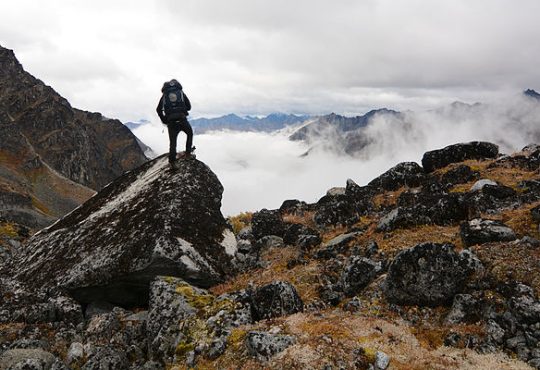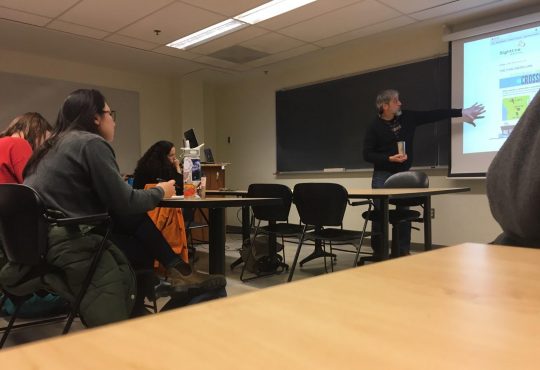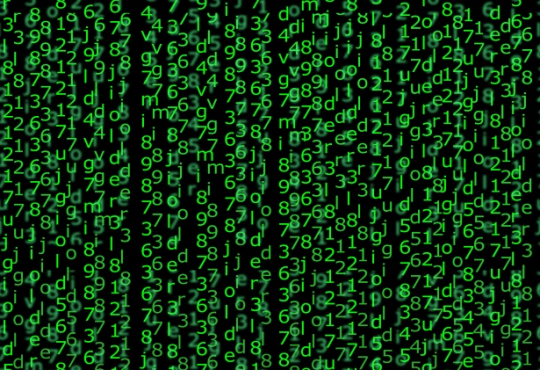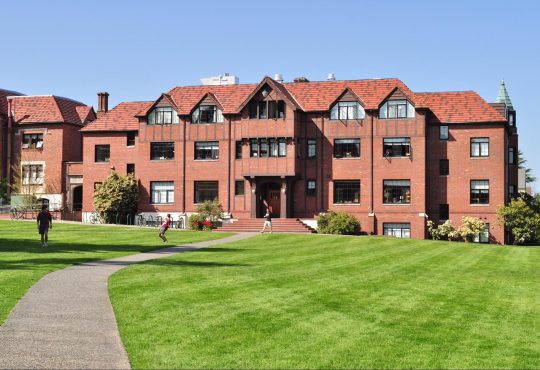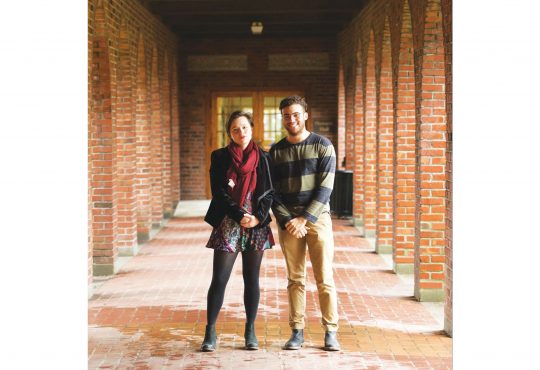On Dec 1, Puget Sound’s Black Student Union (BSU) organized a campus-wide demonstration mourning the death of Michael Brown, who was killed in Ferguson, Miss. Brown’s death sparked nationwide outcry against institutionalized racism and police brutality towards black individuals across America. The BSU organized the demonstrationthrough social media outlets,asking for students to wear all-black clothing on Dec 1.
“Wearing all black will signify your commitment to dismantling institutional racism in our country. Please stand with us in solidarity as we mourn the death of Michael Brown and demonstrate our frustration with the recent grand jury decision,” the#BlackOut Facebook page reads.
“When you ask why I’m wearing all black today… Why wouldn’t I?” senior Sikander Sohail said.
The grand jury of Ferguson made the decision not to indict Brown’s killer, Darren Wilson, on Nov. 25.
This verdict has led to scrutiny of the testimonials and process of the grand jury. After the documents of the trial were released, public criticism of the jury and the judicial system has led many to question the process of Wilson’s prosecution. Many people, such as members of the BSU, are frustrated with the mishandling of information in the trial.
“This decision by the judicial system—it wasn’t surprising. It hurt. It’s baffling. But it’s not surprising,” Adrian Kljucec said. Kljucec is a sophomore and an activist at Puget Sound, with an interdisciplinary major combining African American Studies and Gender and Queer Studies.
The question then arises of what can be done on campus. Demonstrations and discussions by groups such as the BSU are part of the larger nationwide conversation.
“I feel like where [the conversation] currently is on our campus is grappling with understanding why and how these issues have come to be. And then, after moving past that, understanding what you can do and why you even need to do something,” Nakisha Renée Jones said. Jones is the President of the Black Student Union at Puget Sound. “I feel like that’s really the most frequent part of the conversation that the BSU has been having.”
But still, the fact remains that discussion by itself has not ended and cannot end social issues.
“Over the summer, it was a similar sort of spike,” Sohail said. “And then people dipped down in terms of talking about it. Essentially, anytime anything like this happens, every school shooting that’s happened over the last few years, a big conversation happens about gun control, and then it dies down.”
Concerning the events in Ferguson, there has been a rise in the conversation at the time of the grand jury’s public decision. This swell in public and academic discussion brings issues of institutional and systemic racism back into the spotlight.
“Campus has obviously tried to start some kind of dialogue this year with the Race and Pedagogy conference. I don’t think that’s gone over very well. I think that we don’t really have a natural outgrowth on the University, especially coming out of the majority of the student body actively interrogating these issues. They’d rather just kind of tend to explode onto the scene,” C.J. Queirolo, student activist and Senior Content Editor for Wetlands Magazine, said.
But the conversation persists, and at an unforeseen pace. Part of the continuation of Ferguson’s issues is brought about by the rise of social media and the ways in which first-hand information is being accessed. Internet connections allow for timely reports on areas and events in which major events take place. Social media gives first-hand reports long before major media outlets are able to start reporting. In addition, first-hand events through social media are not censored by corporations.
“Things like the Internet…are a huge boon. There were millions of tweets about it before any news organization even touched it,” Sohail said.
Associated with the growth of social media is the growth of youth involvement in current events. A college campus, such as Puget Sound, provides a bounty of socially active individuals who are coming into a new age of information. However, there is disconnection in the transition between internet discussion and community discussion.
One issue is that of bringing marginalized voices to the forefront to begin discussions of marginalization. While it is not difficult to show activist participation (such as wearing all black), many do not feel that they have the ability to spark conversation. As such, those with the ability to speak do not do so.
“The responsibility does not fall upon people of color, of marginalized groups. They are the ones being marginalized, they are the victims. It is not their responsibility to speak up and speak out—and a lot of times, it is not safe for them to do so,” Kljucec said.
A concern with discussions in the Puget Sound body in particular is its racial makeup. A majority of the University’s students are white. Even groups such as the BSU are at risk of being silenced in the hundreds of voices that contribute to the conversation because of the student body’s homogenous makeup.
“I think that we should amplify this current explosion as much as we can, because we haven’t laid the groundwork for this to be… easy for the Black Student Union to organize,” Queirolo said.
“You really just have to start with helping the students—white students on campus, especially—understand how deeply privileged they are, because I think that if you’re in the privileged group, it is hard to see outside the privileged group,” senior Maddie Faigel said.
This explosion of information upon social media outlets is only a beginning. Dissecting and questioning the given information brings the results to light.
“The main question that I ask myself every day is: ‘There are different levels of ignorance; where do we begin to address the problem? What do we talk about first? Who do we talk to first? People who have no concept of reality? Or people who have some idea, but aren’t taking this issue seriously?’” Kljucec said.
From the Race and Pedagogy conference to talks in the classroom, the discussion of race and privilege at Puget Sound can only continue as long as students engage.
Active engagement may force students to confront previously unrecognized societal issues, but discovery leads to additional knowledge and more ability to participate within the deconstruction of institutional racism within the community.
“We cannot be silent. If you’re from a privileged group, dismantle your privilege… I am not a person of color, so I cannot speak for the black community. But what I can do is make sure to dismantle my privilege, to talk to white people… and dismantle their privilege, because if you don’t, that’s an act of violence,” Kljucec said. “Talk, talk, talk, talk, talk, and do not let this issue fall to the side and fall to silence.”

